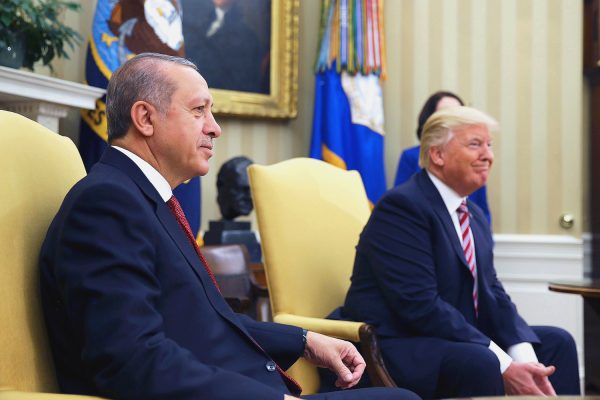
Israel, Saudi Arabia and Turkey have all made their beds with Donald Trump. That’s paying dividends for them, but only so long as this president remains in power. What happens in two or six years?
Israel
Benjamin Netanyahu has gone the farthest in siding with Trump and his party.
Alarmed by Barack Obama’s outreach to Iran (for the rationale behind that, read Greg Lawson’s “United States Should Pivot on Shia-Sunni Divide“), the Israeli prime minister did little to hide his sympathy for the Democrat’s opponent in the 2012 election, Mitt Romney. In early 2015, he even accepted an invitation from Republicans to address Congress on the nuclear deal Obama was negotiating with Iran; an unprecedented intervention by a foreign leader in the politics of the United States.
Center-left politicians and commentators, in both Israel and the United States, warned Netanyahu that siding so openly with one party could jeopardize the relationship. They pointed out that American support for Israel is disproportionate to Israel’s strategic value to the United States. The alliance is based on affinity as much as it is on shared interests. If half of America starts to dislike Israel, or at least an Israel governed by the right, it can only hurt the Jewish state’s interests.
Netanyahu didn’t listen and squandered Democratic goodwill. He singlehandedly made support for Israel a partisan issue in America. 79 percent of Republicans, a record high, now say they sympathize more with Israel than the Palestinians against just 27 percent of Democrats, a record low.
Saudi Arabia
Trump has invoked emergency powers to bypass Congress and sell billions of dollars worth of weapons to Saudi Arabia. He has also vetoed a Republican-backed resolution to end support for the kingdom’s war in Yemen.
But The Atlantic reports that the catastrophic human cost of that war, as well as the murder of Saudi journalist Jamal Khashoggi in Istanbul, has alienated lawmakers from both parties.
The Saudi alliance was never popular in the country, but elites in both parties understood its value. That is changing. If the Saudis want to avoid falling out of favor, they would be wise to take such American sensitivities as human rights and freedom of the press seriously. Trump may not care. Other Americans do.
Turkey
Like the Saudis, Recep Tayyip Erdoğan is counting on Trump to stop Congress from imposing sanctions over Turkey’s purchase of a missile defense system from Russia, the S-400. If he doesn’t, the country could be expelled from the F-35 Joint Strike Fighter program.
Erdoğan’s is the triumph of hope over experience. He previously failed to persuade Trump to withdraw his support from the Kurds fighting the self-proclaimed Islamic State in Syria.
At a time when Turkey’s relations with the EU are deteriorating as well, Erdoğan can ill afford to alienate the United States. Forcing reelections when your party loses the mayoralty in a major city, locking up journalists and suppressing non-violent Kurdish nationalists isn’t helping Erdoğan win more friends in Washington.
